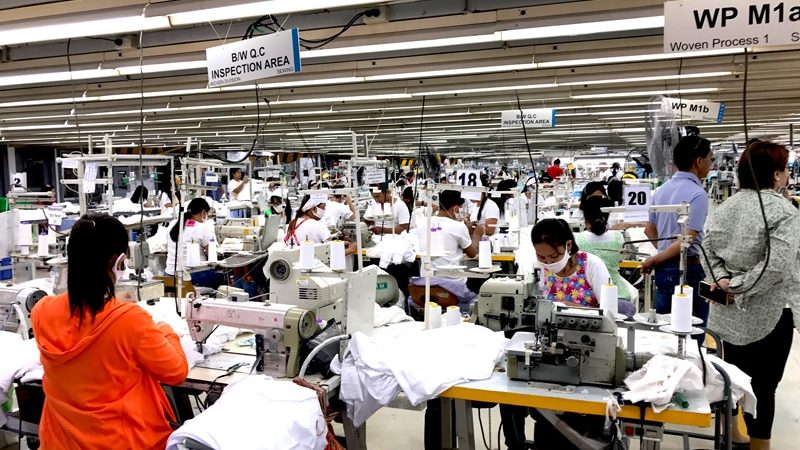The Philippines is experiencing a promising economic upswing, and a key marker of this progress is the recently announced salary increase for workers in July 2024. This development stems from a collaborative effort – a combination of strong advocacy by labor groups, supportive government policies, and a thriving economic environment aiming to elevate the living standards of Filipino employees.
Let’s delve deeper into the details of the wage hike, its rationale, and its anticipated effects on various sectors of the workforce.
A Tailored Raise In Phillippines Salary July 2024
The Department of Labor and Employment (DOLE) announced a nationwide salary increase effective in July 2024. However, the increase will vary by region, acknowledging the different economic realities and cost of living across the Philippines.
On average, workers can expect a wage increase ranging from 5% to 10%, depending on their location and industry.
For instance, employees in the National Capital Region (NCR), where the cost of living is higher, will see a more substantial increase compared to those in less urbanized regions. The minimum wage in NCR is projected to rise from PHP 570 to PHP 627, translating to roughly a 10% increase. Meanwhile, regions with lower living costs will experience a smaller but still significant hike.
Reasons Behind the Raise: A Multifaceted Approach
Several factors contributed to the decision to implement a salary increase now:
- Combating Inflation and Rising Cost of Living: The Philippines has witnessed a steady rise in inflation in recent years, eroding workers’ purchasing power. The salary hike aims to counteract inflation’s effects and help workers maintain their standard of living.
- Rewarding Economic Growth: The Philippine economy has shown remarkable resilience and growth post-pandemic, with sectors like manufacturing, services, and technology leading the charge. Increased productivity and profits in these sectors create a favorable environment for wage hikes.
- Promoting Social Equity: Addressing income inequality remains a priority for the government. By increasing wages, the administration intends to bridge the gap between different socioeconomic classes, ensuring a fairer distribution of economic benefits.
- Recognizing Labor Advocacy: Persistent efforts from labor groups have played a crucial role in pushing for wage increases. Highlighting the disparity between rising living costs and stagnant wages has compelled the government to take action.
Sectoral Impact of the Wage Hike
The salary increase will affect various sectors differently:
- Manufacturing and Industry: Workers in the manufacturing sector, vital to economic growth, will benefit significantly. Higher wages are expected to boost morale and productivity, further enhancing industrial output.
- Service Sector: Employees in retail, hospitality, and customer service will also see wage improvements. Given that this sector employs a large portion of the workforce, the increase will likely enhance consumer spending and economic growth.
- Agriculture: Despite unique challenges, the wage increase aims to support rural workers better. Higher incomes can help reduce rural poverty and stimulate local economies.
- Technology and BPO: The flourishing technology and Business Process Outsourcing (BPO) sectors will continue to attract talent with competitive salaries. The wage hike will help retain skilled workers and maintain the Philippines’ status as a leading BPO destination.

Beyond Wages: Broader Economic and Social Implications
The salary increase is anticipated to have several positive ripple effects on the broader economy and society:
- Increased Consumer Spending: Higher wages mean more disposable income for workers, which is likely to boost consumer spending. This can drive demand for goods and services, stimulating economic activity and growth.
- Poverty Reduction: By increasing the minimum wage, the government aims to lift more people out of poverty. Improved wages can help workers afford better healthcare, education, and housing, leading to enhanced overall well-being.
- Shifting Labor Market Dynamics: The wage hike may lead to shifts in labor market dynamics, with employers potentially seeking more skilled or productive workers to justify higher wages. This could incentivize upskilling and professional development among employees.
- Inflation Control: While wage increases can sometimes contribute to inflation, the government is likely to implement measures to mitigate such effects, ensuring that the overall economic environment remains stable.
Challenges and Considerations: Navigating the New Landscape
While the salary increase is a welcome development, it does come with challenges:
- Business Costs: Small and medium enterprises (SMEs) may find it difficult to absorb the increased labor costs. The government may need to provide support or incentives to help these businesses adjust.
- Inflation Risks: Striking a balance between wage increases and inflation will be crucial. Policymakers will need to closely monitor the economic landscape to prevent any adverse inflationary spirals.
- Effective Implementation: Ensuring that the wage increase is implemented smoothly across all regions and sectors will require
Conclusion
The salary increase in the Philippines set for July 2024 is a significant step toward improving Filipino workers’ lives. It addresses pressing issues of inflation, living costs, and income inequality while contributing to the country’s broader economic growth.
As the nation moves forward, continued collaboration between the government, employers, and labor groups will be essential to ensure the benefits of this wage hike are fully realized, fostering a more equitable and prosperous society.
